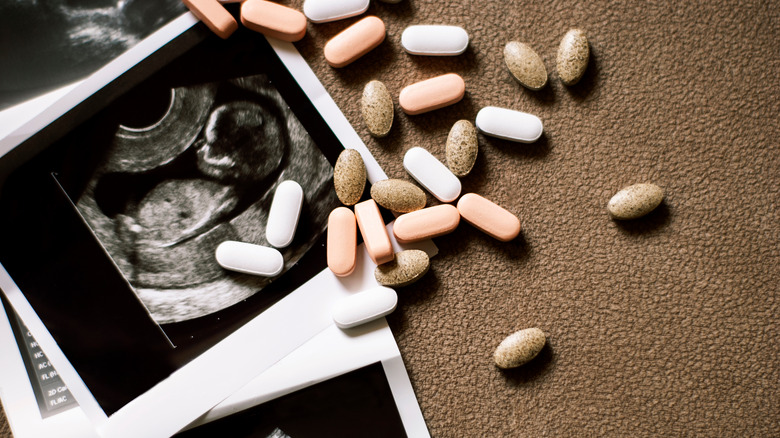Could You Need IVF If You've Conceived In The Past Without It?
Every pregnancy is different and you can have different early pregnancy symptoms, such as intense morning sickness, or none at all, per What To Expect. You may have felt very tired with one pregnancy yet full of energy with another. This has nothing to do with the sex of the baby either, though there is always speculation that it might.
What causes each pregnancy to be different is the unique set of circumstances surrounding you and your new baby. Bodies continually change and our life circumstances are on an ever-changing continuum.
Not only is each and every pregnancy different, but so is the pregnancy journey. You may have gotten pregnant so easily the first time and even though it hasn't been that long since you were pregnant (it's recommended to wait at least 18 months for your body to recover before getting pregnant again), you may not get pregnant as easily the next time, per MedicineNet. Although you have the same partner and same basic daily life, it's possible to need some help in trying to conceive the second time.
What happens when it's difficult to get pregnant again?
When you've already been pregnant and conceived easily the first time but you're having trouble getting pregnant again, it's known as secondary infertility. While there has been much research done on primary infertility, there has been the same level of investigation done on secondary infertility, per The New York Times.
However, some of the reasons for all infertility remain constant. These include advanced maternal age, scarring and adhesions from infections or surgery, blocked fallopian tubes, fibroids, and infections, as well as chronic medical conditions such as endometriosis, polycystic ovary syndrome, and thyroid conditions.
Keep in mind more than half of the time, the male partner is responsible for infertility due to low sperm count, abnormally shaped sperm, or sperm with low motility. Some causes include sexually transmitted disease, erectile dysfunction, hormonal problems like low testosterone, using steroids, being overweight, and frequenting hot tubs.
It's important for both partners to be tested. When secondary infertility is discovered, IVF can be a good option.
How IVF can help secondary infertility
When diagnosed with secondary infertility, you have some treatment choices. A fertility specialist may opt to start you off with injectable medications to encourage more eggs to grow and potentially be fertilized, per Penn Medicine. Another choice of treatment is an intrauterine insemination. In IUI, a doctor will place sperm directly in the uterus so if fertilization happens, it takes place internally.
IVF is a good course of action to treat secondary infertility and it doesn't matter if you didn't use IVF in previous pregnancies.
There is also no difference in how IVF works to help achieve a first pregnancy or a subsequent pregnancy. The procedure is the same. With IVF, eggs are retrieved from the body in an egg retrieval procedure and then the egg is combined with sperm in the lab, so fertilization occurs externally.
According to Coastal Fertility Specialists, there is a success rate of 15-20% per IVF cycle for secondary infertility.
Though IVF can be used for secondary infertility, the specific cause of infertility along with maternal age will most determine success rates. A visit with a fertility specialist will help you determine whether IVF is your best option.


